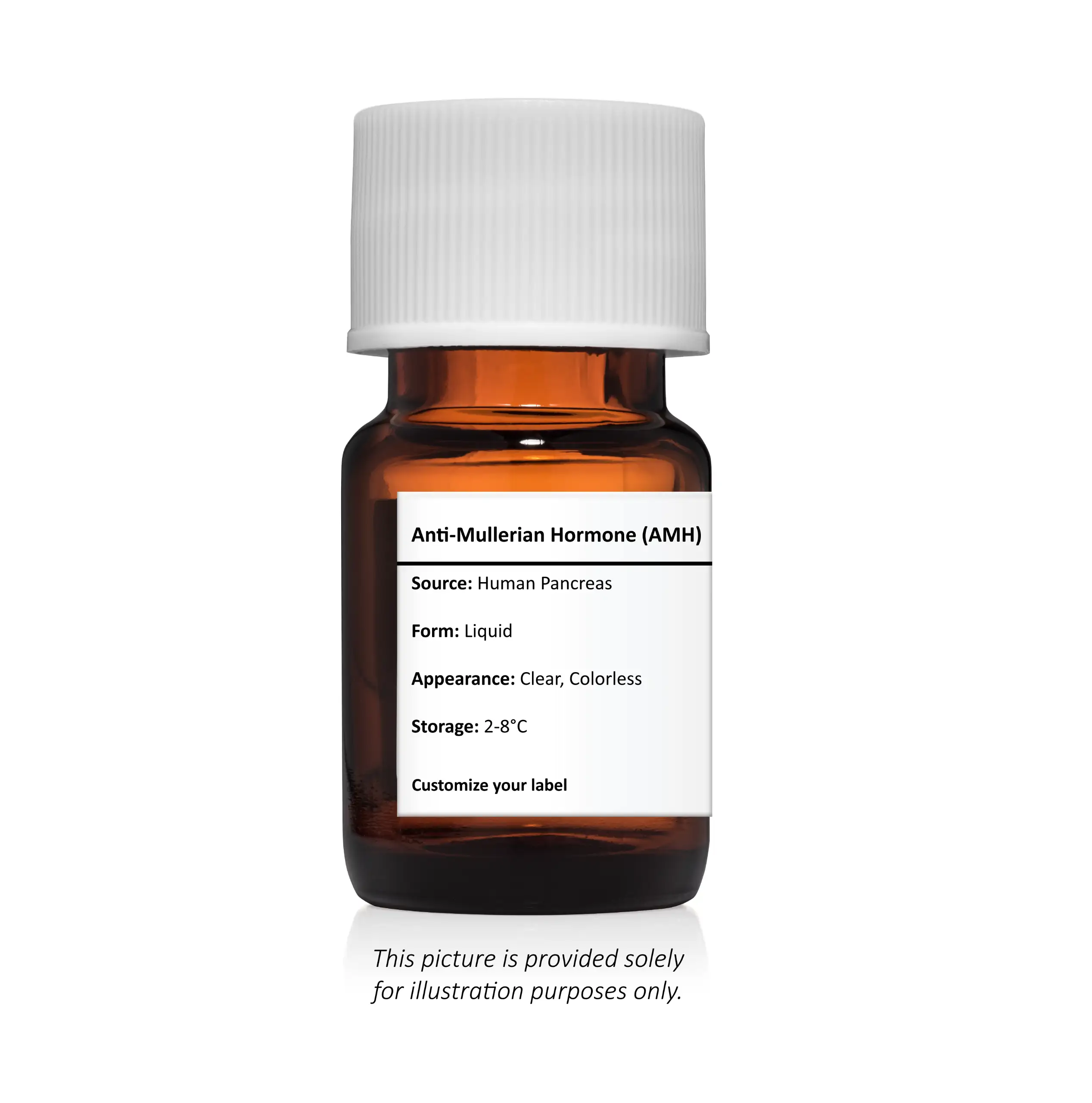Anti-Müllerian Hormone (AMH)
Anti-müllerian hormone (AMH) is a dimeric glycoprotein and is classified as a transforming growth factor-beta (TGF-Beta) family hormone.
| Product Specifications | |
|---|---|
| Source | Bovine |
| Form | Liquid |
| Buffer | TRIS buffer with 0.1% Sodium Azide at pH 7.4 |
| Concentration | 0.2 µg/mL |
| Purity | 78% by SDS-PAGE |
| Assay | Assay performed by Roche Cobas e601 |
| Storage | 2-8°Celsius |
| Molecular Weight | Monomer 66-70 kDA, Dimer 132-154 kDa |
| Appearance | Clear, Colorless |

Expression of AMH in Sertoli cells of male testes suppresses development of müllerian ducts into the uterus. Normal levels of AMH are elevated in juvenile males and decline during puberty and adulthood. In females, AMH is expressed by granulosa cells of the ovaries, and levels remain steady during reproductive years after which it is undetectable. Due to the role of AMH in sex determination and development, measurement of AMH serum levels is useful for estimation of gonadal function, fertility, and as a tumor marker.
